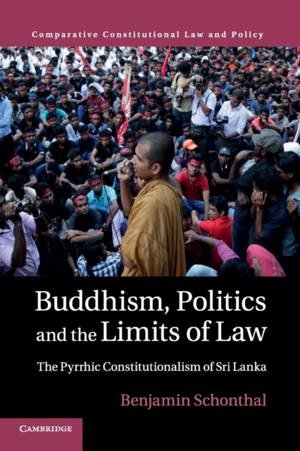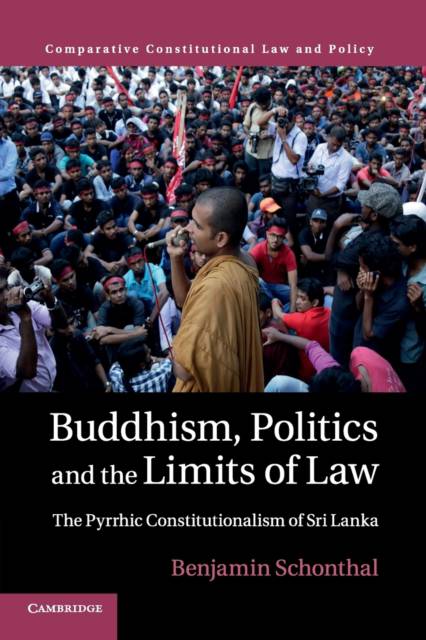
Door een staking bij bpost kan je online bestelling op dit moment iets langer onderweg zijn dan voorzien. Dringend iets nodig? Onze winkels ontvangen jou met open armen!
- Afhalen na 1 uur in een winkel met voorraad
- Gratis thuislevering in België vanaf € 30
- Ruim aanbod met 7 miljoen producten
Door een staking bij bpost kan je online bestelling op dit moment iets langer onderweg zijn dan voorzien. Dringend iets nodig? Onze winkels ontvangen jou met open armen!
- Afhalen na 1 uur in een winkel met voorraad
- Gratis thuislevering in België vanaf € 30
- Ruim aanbod met 7 miljoen producten
Zoeken
Buddhism, Politics and the Limits of Law
The Pyrrhic Constitutionalism of Sri Lanka
Benjamin Schonthal
€ 60,95
+ 121 punten
Uitvoering
Omschrijving
It is widely assumed that a well-designed and well-implemented constitution can help ensure religious harmony in modern states. Yet how correct is this assumption? Drawing on groundbreaking research from Sri Lanka, this book argues persuasively for another possibility: when it comes to religion, relying on constitutional law may not be helpful, but harmful; constitutional practice may give way to pyrrhic constitutionalism. Written in a lucid and direct style, and aimed at both specialists and non-specialists, Buddhism, Politics and the Limits of Law explains why constitutional law has deepened, rather than diminished, conflicts over religion in Sri Lanka. Examining the roles of Buddhist monks, civil society groups, political coalitions and more, the book provides the first extended study of the legal regulation of religion in Sri Lanka as well as the first book-length analysis of the intersections of Buddhism and contemporary constitutional law.
Specificaties
Betrokkenen
- Auteur(s):
- Uitgeverij:
Inhoud
- Aantal bladzijden:
- 318
- Taal:
- Engels
- Reeks:
Eigenschappen
- Productcode (EAN):
- 9781316606414
- Verschijningsdatum:
- 15/03/2018
- Uitvoering:
- Paperback
- Formaat:
- Trade paperback (VS)
- Afmetingen:
- 152 mm x 229 mm
- Gewicht:
- 430 g

Alleen bij Standaard Boekhandel
+ 121 punten op je klantenkaart van Standaard Boekhandel
Beoordelingen
We publiceren alleen reviews die voldoen aan de voorwaarden voor reviews. Bekijk onze voorwaarden voor reviews.











